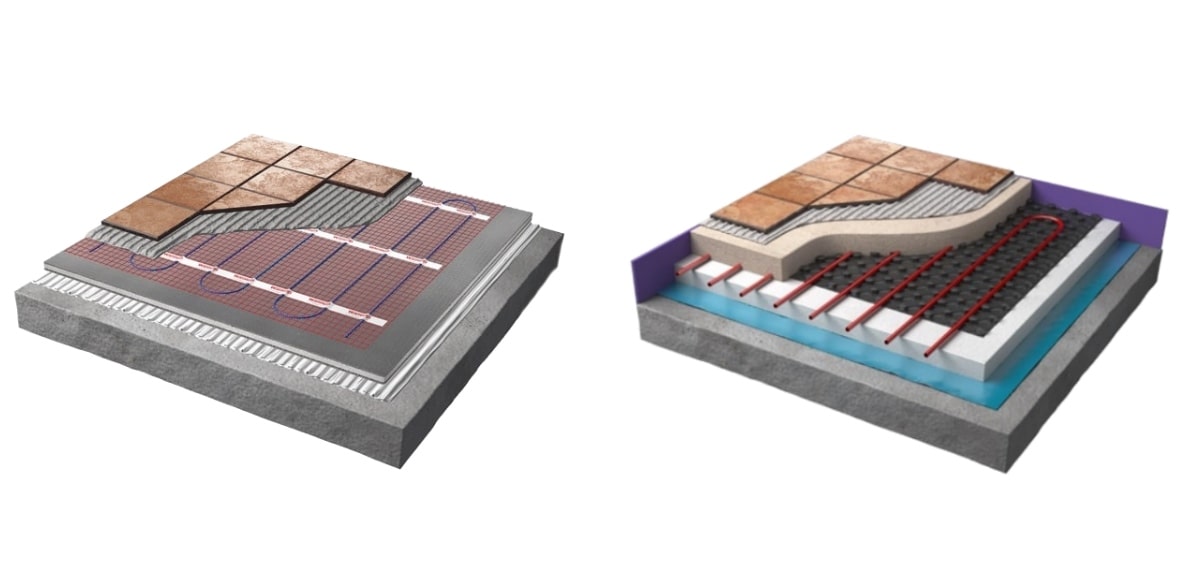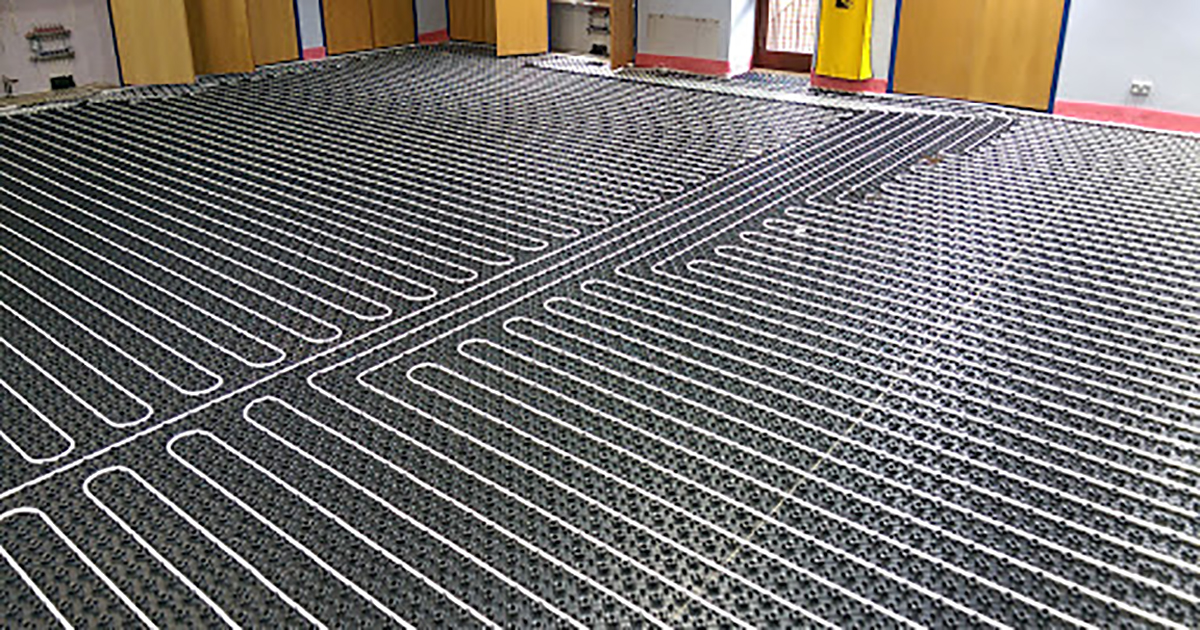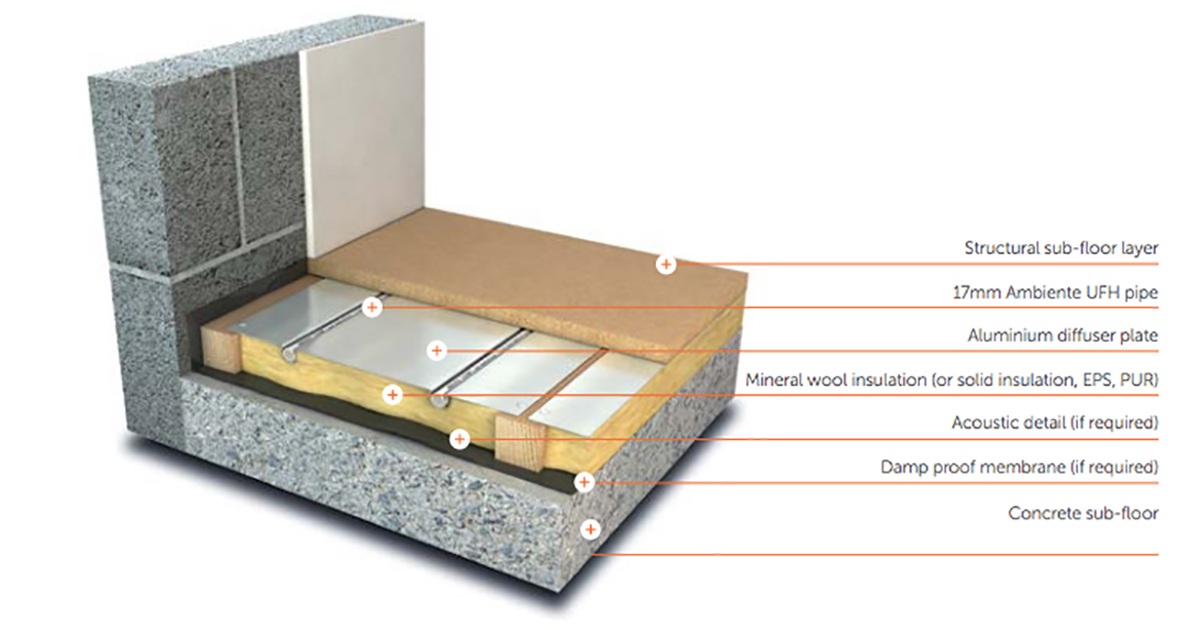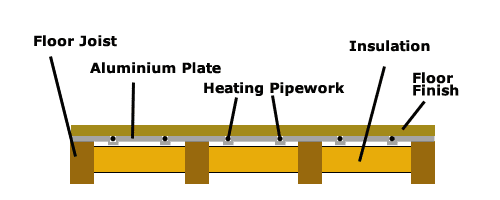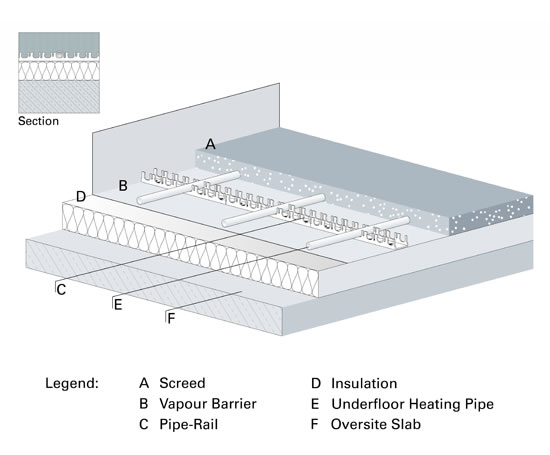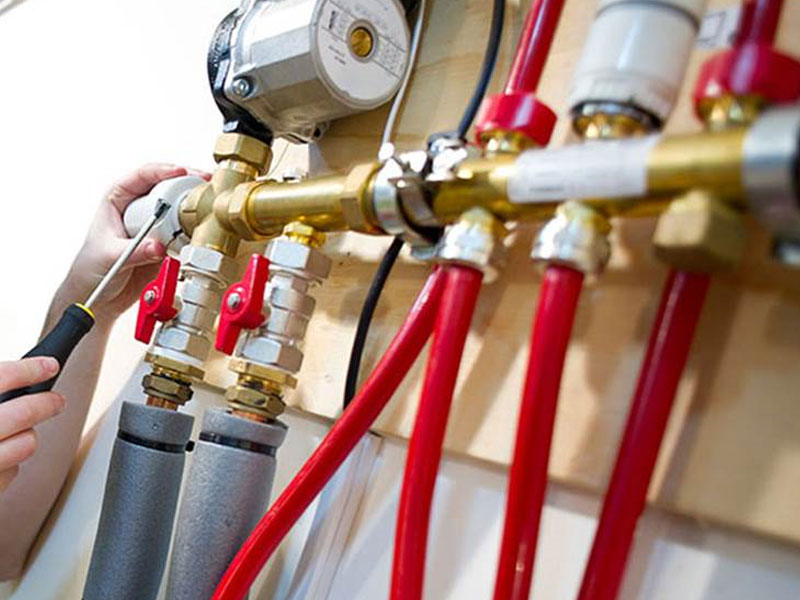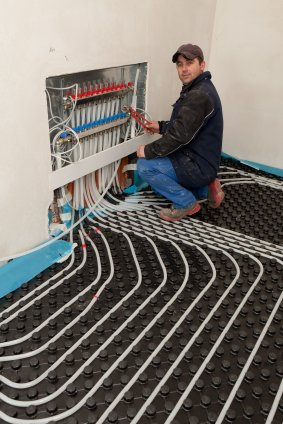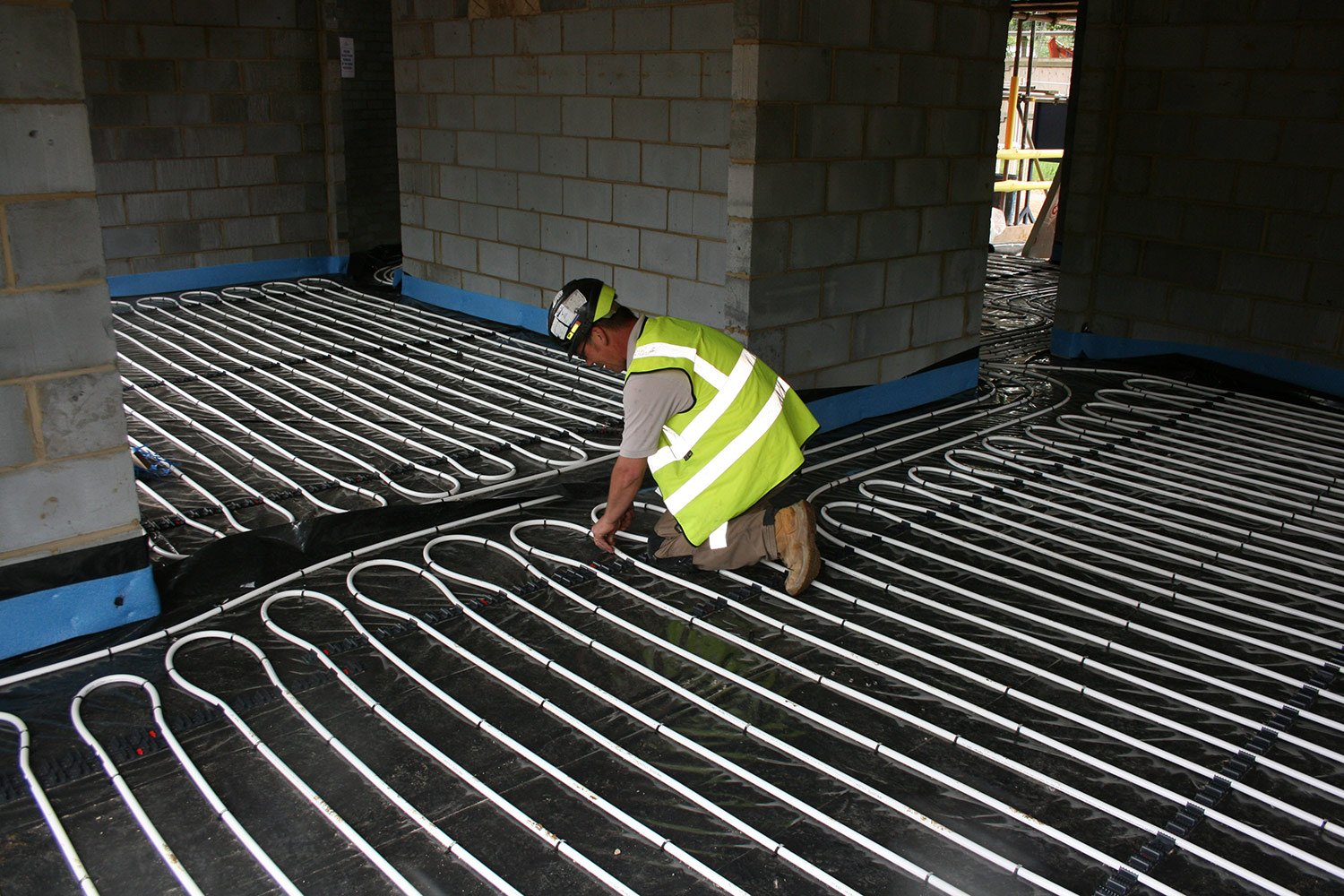It s a popular option when a floor joist structure makes installing underfloor heating between joists impractical or the decision to include ufh is made later in the build schedule.
Wet underfloor heating floor build up.
As electric systems are installed directly under the floorcovering and work independently from your central heating system they are particularly useful for one room installations or where the sub floor level is already set.
One of if not the most important of which is floor construction.
Wet versus dry underfloor heating systems.
This diagram shows a typical build up on a concrete subfloor image credit.
Underfloor heating can be fitted in both concrete and timber suspended floors but for other floor constructions for example we also offer a floating floor solution please contact us.
Before choosing underfloor heating many factors need to be considered.
Underfloor heating introduction design principles underfloor heating design principles 5 osma ufh design and installation guide 2006 if you use a boiler designed to heat the water to a higher temperature it is necessary to add a water mixing control unit to reduce the temperature of the water entering the underfloor heating system see pages.
This solution offers a good acoustic performance helping to reduce.
Underfloor heating both wet and dry can be installed on most floor constructions as long as there is enough space to build up the floor taking into account doors stairs etc and the floor can take the weight.
Both hydronic and electric underfloor heating systems work well with timber floors as timber conducts and holds the warmth produced by the floor heater and radiates this into the room.
Also note that we can offer many different floor constructions.
Wet systems are most easily installed where it s possible to take up floors or where new floors are being constructed so is likely to suit new extensions conservatories and new open plan kitchen cum living areas.
The natural properties of timber also mean that it has a fast heat up time whilst also resisting heat from escaping too quickly making timber helpful in maximising the energy efficiency of an underfloor.
Underfloor heating is mostly used in ground floor rooms but in reality there is a system to suit any type of floor construction.



